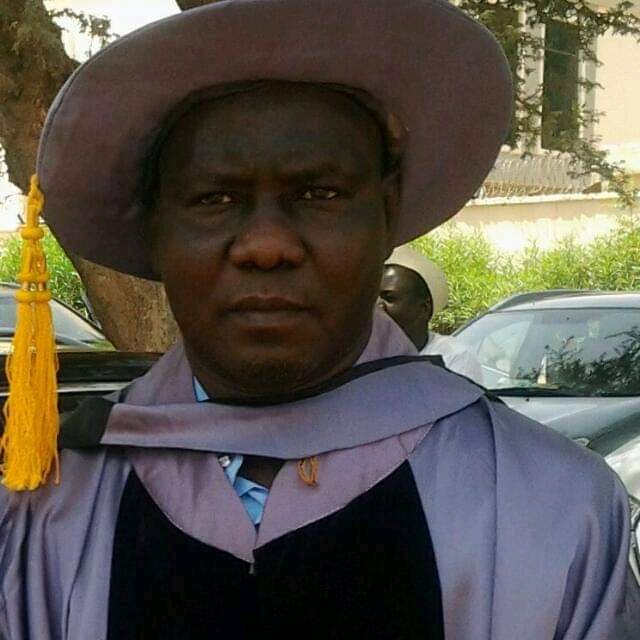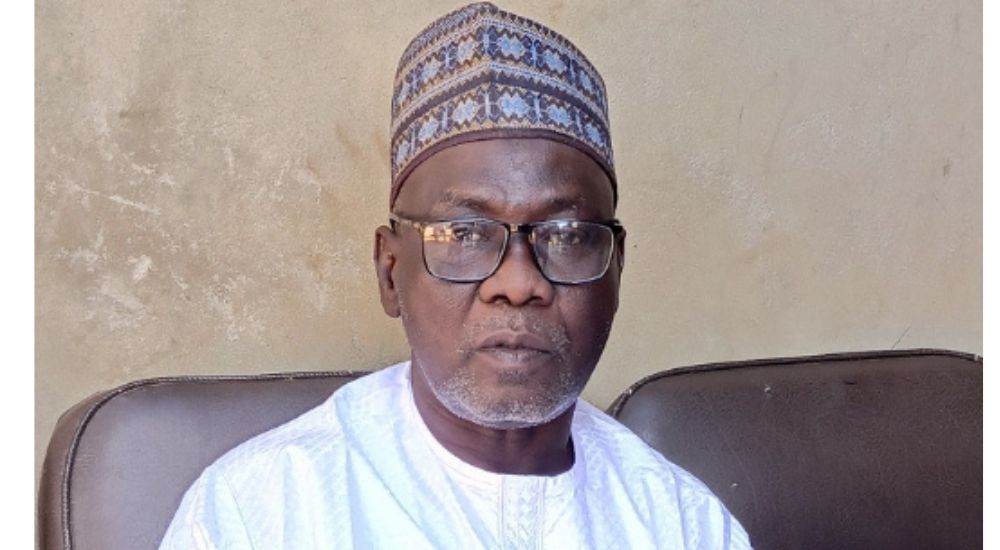INTERVIEW: Why Sokoto Has Low Girl-Child Enrolment In Schools And Gov Aliyu’s Plans — Education Board Boss
Professor Mustapha Tukur Namakka is the Executive Secretary, Sokoto Female Education Board.
In this interview with SHAFA’ATU SULEIMAN, he spoke about girl-child education in the state and how the government plans to change the narrative.
Advertisement
EXCEPTS.
Can You Share With Us The Challenges Facing Girl-Child Education In Sokoto?
First, upon my resumption I meant a lot of problems faced by the Board itself which has been hindering its mandate to function effectively. One, the Board was established by the immediate past administration but was inactive.
As a board, we need to function as an autonomous body and should have a composition of members that will sit and take some decisions and operate fully like inspectors of female schools under it, renovate them if necessary, give recommendation for the establishment of new schools, recruitment and promotion of manpower, give punishment and reward staff as well as training and retraining. But all these things have not been put in place by the previous administration.
Advertisement
I don’t really know what brought this negligence on the government’s part. But, His Excellency, Dr. Ahmed Aliyu wanted to change this narrative by appointing me as the Executive Secretary of the Board.
We want to let the Board function effectively as an entity that was established by the law. The edict that established this Board is very clear about its autonomy.
How Many Female Schools Are Under The Board?
We have more than 120 female schools across the state and by the edict that established this Board, all the female schools that are not directly under the Ministry of Science and Technology and that of the Ministry of Arabic and Islamic Board are supposed to be under the Board but still only 20 of these schools were given to us.
And we have a lot of limitations to those given to us. But we are making a lot of engagements and consultations with relevant agencies concerned and the state House of Assembly to make sure that these things are changed.
Advertisement
There Are Statistics Indicating Sokoto As One Of The Backward States In The Federation With Low Enrolment Of Girl-Child Education And Out-Of-School Children. Is The State Government Worried About This Development?
It is something that should be very worrisome and alarming to any responsible government and we as government cannot just fold our arms and be looking at these statistics rising. But, let me state that the poor rate of girl-child enrollment is peculiar to the rural dwellers in the state. And this was caused by the misperception of Western education and the poverty that often constrains some of the parents to enroll their children in a conventional school.
So, because of these factors, they rather engage the children in hawking or send them to farmland to work for them. But, by special grace of God, we have proposed to the Executive Governor by way of a memo to let the Board carry out campaign and sensitization programmes across rural communities to improve the enrollment rate.
We are also recommending that schools should be established in urban areas for the benefit of children from those communities faced by insecurity. They should be moved to areas with less security threat.
What Are The Other Plans That The Board Is Making To Revert The Current Low Enrollment Of Girl-Children In Schools In The State?
Our plan is multidimensional, one, we want to engage and advise the Government to finance various programmes of the Board on Girl-Child education in the state for those in school and out-of-school.
Advertisement
We have programmes for partnership with both International and national development partners, philanthropists and civil society organisations who are interested in or working on the issue of girl-child education.
But in all, we need to be autonomous to enable us achieve these laudable objectives.

You Are An Academic In The Field Of Entrepreneurship Education, Do You Believe That Entrepreneurship Has A Place In Girl-Child Education In Today’s School Curriculums?
I will tell you that my feeling about entrepreneurship is so superb because of the key interest. Maybe it was due to my background.
We are taking entrepreneurship hand-in-hand with education for girls while still in schools. We want to teach the girls the mode of enterprises before going out of school. It is not a good idea to introduce business management to the youths after leaving the school, and that has been the major predicament of graduates in the country.
Teaching the girl-child entrepreneurship courses while there in schools remains the best approach to empower women and reduce poverty in the society.
Our Board will be focusing on trainings related to ICT or computer skills, and not limited to traditional skills of sewing, tailoring or knitting. Everyone needs to be computer literate to drive business ideas or promote existing business.
What Is The Position Of The State Government On The N1 Billion Gudu Model School Established By The Immediate Past Administration For The Purpose Of Driving Children’s Enrollment In The State? Gudu LGA Has The Highest Out-Of-School Children In Nigeria.
Yes, I learnt that huge money was committed by the previous government in establishing that school and that money shouldn’t be a waste. I was told the school was abandoned due to insecurity and not to risk the lives of the children.
There is a security challenge in the community and I will not subscribe to allowing children to be exposed to such situations. But I believe with the commitment of the present government, we are going to devise an alternative in ensuring the aim of getting the children enrolled in schools is achieved.
The Board is planning to advise the Government on how to mobilize all children, most females whose communities have been affected, to urban areas to enable them continue their education. That is the perfect way to resolve security challenges affecting enrollment of children from security-prone communities in the state.



